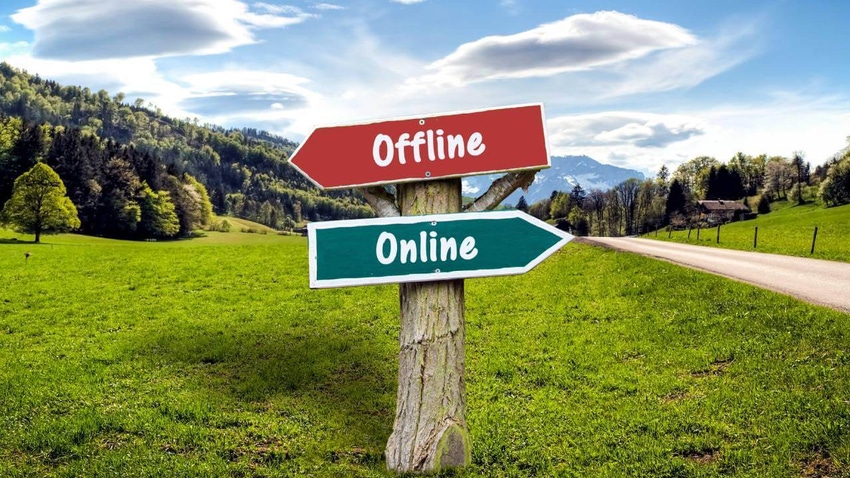ISPs, digital navigators work to promote the ACP
The federal government and ISPs, alike, are funding and participating in efforts to grow enrollment in the Affordable Connectivity Program (ACP) with the help of digital navigators.

As the Affordable Connectivity Program (ACP) fights for its life in the halls of Congress, community groups and digital navigators across the country are simultaneously hard at work ensuring that the broadband subsidy program helps as many people as possible.
Last Wednesday marked the start of the White House's "week of action" on the ACP, wherein federal agencies and more than 300 organizations are conducting coordinated outreach and hosting events to connect more eligible households with the monthly broadband subsidy. This week featured events such as a digital fair with Starry at the Denver Housing Authority, an ACP promotion event with AT&T at a flea market in Fresno, California, an ACP workshop at the New York Public Library and more.
AT&T on Tuesday also announced a separate but related effort, in partnership with the Public Library Association (PLA), to host free, in-person ACP and digital literacy workshops at over 200 libraries in 45 states, between August and December. The initiative is funded with $1.27 million from AT&T.
As the Biden administration noted last week, the ACP – which provides a monthly broadband subsidy of $30 ($75 on tribal land) – is currently serving more than 18.5 million households, but research shows "approximately half of the remaining qualified Americans are not aware of the program." According to the Institute for Local Self-Reliance (ILSR), 52 million households are currently ACP-eligible.
To address that, the "week of action" is happening alongside and in addition to various national efforts undertaken by nonprofits, community organizations and local governments, supported with grants from the FCC, to help families learn about and enroll in the ACP. The FCC launched four such grant programs last year to help spread awareness, including:
National Competitive Outreach Program (NCOP) – funds outreach activities to increase awareness of/participation in the ACP for low-income households.
Tribal Competitive Outreach Program (TCOP) – funds outreach activities to increase awareness of/participation in the ACP for low-income households on tribal land.
Your Home, Your Internet (YHYI) – one-year program that aims to increase ACP awareness with federal housing assistance recipients.
ACP Navigator Pilot Program (NPP) – one-year program that funds groups helping people complete and submit ACP applications.
The Commission has since awarded over $66 million to 197 applicants through NCOP and TCOP; plus nearly $5 million to 23 applicants through YHYI, and $2.4 million to 11 applicants through NPP. In late May, the FCC then opened a second round of NCOP and TCOP funding, making up to $10 million available, according to a notice of funding opportunity. Applications are due June 30, with awards expected to be announced by mid-September.
Funding 'digital navigators'
In many cases, those grants aren't just funding better ACP marketing campaigns. They're also supporting person-to-person efforts via digital navigators to educate individuals on what the program is, why and how they qualify, and why they can trust it, as well as education on digital device use and much more.
For example, speaking on a panel last week hosted by New America, Public Knowledge and Network: On, Natali Betancur, deputy director at the Center for Digital Equity at Queens University of Charlotte, discussed being at an ACP enrollment event at a senior center for a local housing authority where she encountered people who not only were unaware they qualified for the benefit, but also didn't know how to find an ISP or create an email address.
Another panelist, Alisa Valentin, senior director of tech and telecom policy at the National Urban League – which received $740,000 from the FCC through NCOP in March – discussed the need to use language that resonates with communities.
"We're authentic with our messaging. We know what worries people," she said. "We know what will make people scan the QR code and visit the website because we're already in all of these communities."
But while praising the FCC grant programs, Angie Cooper, EVP at Heartland Forward – a think tank focused on economic policy, and one of five Arkansas organizations to receive ACP grant funding (Heartland Forward received $400,000) – also urged digital navigator groups and local authorities to find a way to coordinate outreach, rather than confuse people further with overlapping efforts. Cooper added that the three sticking points for people not signed up for the ACP include lack of trust, lack of time and the process being too complicated.
"If I go do my thing across Arkansas to get more people signed up, and I don't coordinate with those four other organizations, then we're in the same boat," she said. "I'm all about, let's not recreate the wheel. Let's work together."
Fuzzy future
Of course, promoting a government program that is currently slated to run out of funding next year is a tricky proposition. At the current rate, some of the funding awarded to digital navigators to promote the ACP is projected to last longer than actual funding for the ACP itself, unless Congress acts to fund the program.
To that end, the National Urban League's Valentin stressed the importance of face-to-face communication not only to grow the ACP's enrollees, but also to ensure it has a future.
"You all know who influences, you know, various members of Congress, right? Especially when you're talking about ... in local communities, people know: 'Okay, this person went to college with this person, that person's married to this person and this person cares about this industry,' that sort of thing?" Valentin said. "Use those various connections so that we can make sure that we have sustainable funding for the Affordable Connectivity Program."
Related posts:
— Nicole Ferraro, editor, Light Reading, and host of "The Divide" on the Light Reading Podcast.
Read more about:
ACPAbout the Author(s)
You May Also Like




_International_Software_Products.jpeg?width=300&auto=webp&quality=80&disable=upscale)







